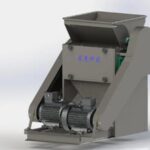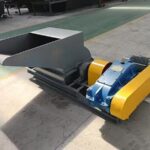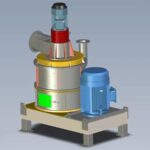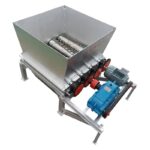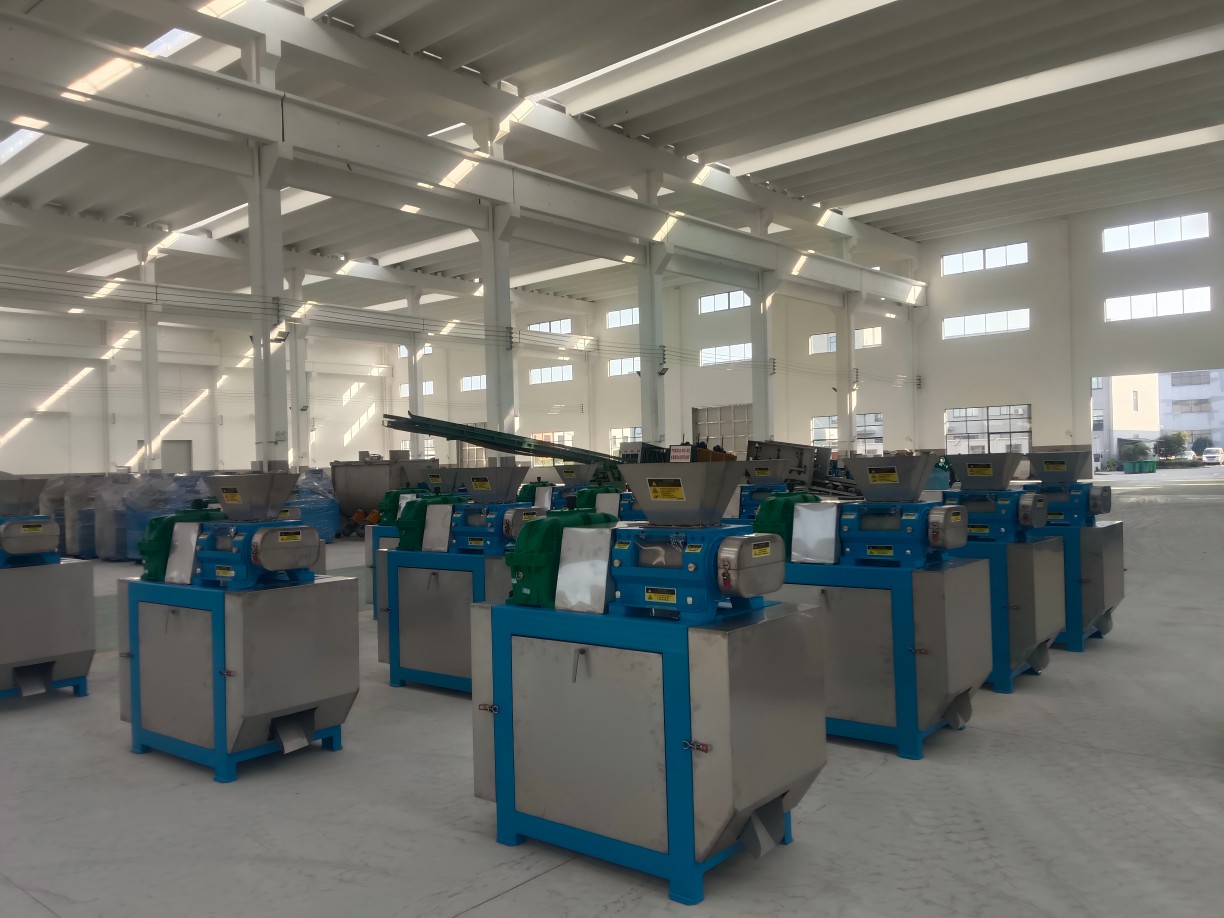Vertical Chain Crusher
Vertical Chain Crusher
Vertical chain crushers are widely used in the fertilizer industry to crush medium-hard materials such as solid chunks of fertilizer. It features high-strength, wear-resistant alloy chain plates that rotate at synchronized speeds, ensuring efficient and uniform material breakdown. With a thoughtfully designed feed and discharge system, it helps maintain consistent material size while preventing blockages or adhesion inside the chain crushing machine, making it easier to clean. Its robust construction and reliability make it widely applicable not only in fertilizer production but also in industries such as chemical processing, construction, and mining, where consistent and efficient material processing is essential.
SPECIFICATIONS
| Model | Power (kW) | Rev. (r/min) | Production capacity (t/h) | Feeding size (mm) | Final size (mm) |
| LP600 | 18.5 | 1470 | 5 | ≤20 | ≤1 (with the percentage of over 70%) |
| LP700 | 22 | 1470 | 8 | ≤25 | ≤1 (with the percentage of over 70%) |
| LP800 | 30 | 1475 | 12 | ≤30 | ≤1 (with the percentage of over 70%) |
| LP1000 | 37 | 1480 | 15 | ≤35 | ≤1 (with the percentage of over 70%) |
Features
- The interior of the pan is lined with polypropylene or stainless-steel plates, making it resistant to corrosion and wear, while preventing material adhesion.
- This mixer is suitable for a wide range of materials, whether they are dry or wet granules or powders, offering flexibility for various applications.
- With a short mixing cycle and high efficiency, the vertical pan mixer ensures uniform blending in minimal time.
FAQ
How to choose the right fertilizer production equipment for my plant?
Choosing the right equipment for your fertilizer production project starts with understanding your production needs. Here are a few key questions that help narrow down the best options:
- What type of raw materials are you working with?
- Do you aim to produce powdered or granular fertilizer? What specific characteristics should the final product have?
- What is the desired output capacity for your production line?
- What are the local environmental conditions, such as temperature and material moisture levels?
- What heat source will your drying equipment rely on?
Once we have this information, we can recommend the most suitable fertilizer processing equipment and production line for your needs.
Why does the granular fertilizer produced by my production line tend to clump?
Clumping is a common issue in fertilizer production, usually caused by moisture, temperature, and pressure. If the fertilizer you are planning on producing has a high moisture content, it could lead to clumping, which might mean your drying equipment isn’t performing optimally. Similarly, high temperatures can make the granules more prone to sticking together, which is why cooling equipment is often used after the drying process. Lastly, high pressure in the fertilizer production line can increase the surface area of the granules, making them more susceptible to chemical reactions that cause clumping.
Related Products
Contact us now
To Learn About Our Fertilizer Production Lines
Mobil/Whatsapp
086-17715506502
karen@yrcexport.cn



